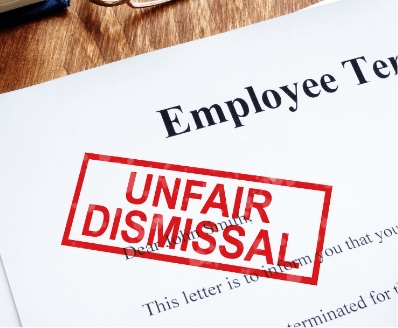Employment
LAW Attorneys
IN San Diego
We Fight For Employees' Rights And Fair Compensation In San Diego
At Haeggquist & Eck, LLP, we are dedicated to protecting and promoting the rights of employees throughout San Diego.
Our firm ensures that workers receive fair treatment and compensation as mandated by employment laws. We stand up for workers facing various employment issues, from disputes over wages to cases of discrimination.
Our San Diego employment law attorneys are committed to thoroughly reviewing and advancing any potential claims on behalf of our clients, striving for justice and fair outcomes in every situation.
Table of Contents
Understanding Your Rights Under San Diego's
Employment Laws
The relationship between employers and employees is governed by a comprehensive set of rules designed to establish fair treatment in the workplace. For instance, minimum wage regulations guarantee that employees are compensated adequately. These laws also protect employees from discrimination based on specific characteristics, providing equal opportunities for all. Moreover, creating a safe work environment is a fundamental obligation of every employer, including offering health insurance under specific conditions and managing payroll taxes accurately.
Given the breadth of these regulations, it’s understandable for both employers and employees to seek clarity and assurance that they are fulfilling their legal duties and rights. While employers often consult lawyers to ensure compliance with these diverse and evolving laws, employment law’s true power lies in protecting employee rights. These laws benefit employees by upholding their rights to fair pay, equal treatment, and a safe working environment.
When these rights are in jeopardy or if there’s uncertainty about the proper application of these laws, employment attorneys become beneficial allies for employees.
Labor law attorneys offer guidance, support, and representation to make sure that employees’ rights are recognized and defended. Whether helping people file claims of unfair labor practices or discrimination or certifying that safety standards are met, employment lawyers play a key role in enforcing the law and advocating for employee justice. Employees have the right to seek the counsel of employment attorneys in cases where an employer may fail to meet legal obligations. These professionals help employees understand their rights, explore their options, and take decisive legal action to enforce the law, providing a path to justice and fairness in the workplace.


FUNDAMENTAL
Employment Laws Protecting San Diego Workers
The most notable employment laws in California include the following.
Like the rest of California and the United States, San Diego is governed by several essential employment laws to guarantee workers' rights and fair treatment.
These laws cover various employment aspects, from wages to working conditions, providing a framework for employee protection.
Minimum Wage Laws
Under the Fair Labor Standards Act established in 1938, employees are guaranteed a minimum wage. California set higher standards to reflect the cost of living and unique economic conditions. This ensures that all employees receive compensation that meets or exceeds these minimum requirements regardless of their pay structure.
Overtime Pay Laws
The right to overtime pay is another fundamental protection for employees in San Diego. The Fair Labor Standards Act mandates that employers pay employees one and a half times their regular rate for hours worked beyond the standard 40-hour workweek. This law underscores the value of employees' time and effort, particularly during extended work periods.
Family And Medical Leave
While the U.S. does not require paid medical leave, the Family and Medical Leave Act enables eligible employees of larger employers to take up to 12 weeks of unpaid leave. This provision supports employees during significant life events, including the birth or adoption of a child and personal or family health issues. It assures employees don't have to choose between their jobs and their family or health needs.
Collective Bargaining
The right to collective bargaining is enshrined in law, empowering employees to negotiate wages, working conditions, and benefits with employers. This process is facilitated by historic legislation, including the Clayton Act and the National Labor Relations Act, which protect the rights of employees to organize and advocate for their interests collectively.
Safe Working Conditions
A safe workplace is a fundamental right for all employees, with the Occupational Safety and Health Act protecting against workplace hazards. This law also safeguards employees from retaliation when they exercise their rights to report unsafe conditions, ensuring that safety is a paramount concern in every workplace. These laws form the cornerstone of employee rights in San Diego, offering protections that cover the breadth of the employment experience. Understanding these rights is the first step toward securing fair and just treatment in the workplace. Employment attorneys play a pivotal role in enforcing these protections and advocating for workers.
Addressing Unfair
Workplace Practices and Discrimination
In California, the law mandates that employers maintain a workplace free from discrimination, providing every employee is treated fairly regardless of race, color, religion, sex, national origin, disability, age, and other protected characteristics. The California Fair Employment and Housing Act (FEHA) and the Civil Rights Act of 1964 set strict guidelines against biased treatment or harassment based on these protected attributes.
These employment discrimination laws work together to warrant that all employees enjoy a respectful, equitable workplace environment. The Age Discrimination in Employment Act of 1967 explicitly protects employees over 40 from prejudice, emphasizing that talent and contribution are not bound by age. Furthermore, the law requires employers to accommodate employees with disabilities or religious needs, providing the necessary adjustments to support their ability to perform their roles effectively.
These accommodations testify to the commitment to an inclusive workplace where diversity is recognized and embraced. This legal framework serves as a shield for employees, offering protection against discrimination and promoting a culture of respect and equality. For individuals facing discrimination, legal avenues are available to address and rectify these injustices, reinforcing the principle that fairness in the workplace is not just an ideal but a legal requirement.


Focusing on
Employee Rights in Employment Law in San Diego, CA


Employment law encompasses a broad array of practices aimed at safeguarding workplace rights and ensuring fair treatment for employees. While employment attorneys serve various roles across different sectors, including working for employers and government agencies, advocating for employees is a significant and impactful part of their work.
Employees often seek the guidance and representation of employment attorneys when their rights are compromised or when navigating the complexities of employment disputes. This includes situations where employees must assert their right to fair wages, mandatory overtime pay, or when they need to challenge discriminatory practices, providing their treatment is in line with California’s rigorous employment standards.
One critical area where employment lawyers are indispensable to workers is in the realm of discrimination claims. Under California law, including the California Fair Employment and Housing Act (FEHA), employees are protected against discrimination based on various characteristics, such as age, race, gender, religion, and disability.
Labor attorneys help employees understand these protections and pursue employment law claims to address and rectify unlawful treatment. Moreover, employment attorneys are vital in collective bargaining, representing unions and their members in negotiations to secure fair working conditions, wages, and benefits.
Their experience reassures that employees’ voices are heard and their interests are adequately represented in discussions with employers. Beyond individual disputes and negotiations, employment lawyers also contribute to shaping broader employment practices and policies.
They might be involved in drafting and negotiating employment contracts that uphold employees’ rights while ensuring compliance with state and federal laws. Additionally, through their work with government agencies, employment attorneys participate in developing and enforcing employment laws, advocating for policies that promote fairness and equality in the workplace.
Employment lawyers play a foundational role in protecting and advancing employee rights. An experienced employment lawyer makes sure that San Diego employees have access to justice and are treated fairly and with respect in their places of work. These attorneys are a critical resource for employees facing legal challenges or seeking to understand their rights. Labor lawyers provide the support and advocacy necessary to navigate the legal system and achieve positive outcomes
Advocating for Employee
Rights and Legal Compliance at Work
In San Diego and across California, businesses must follow a comprehensive set of employment laws regardless of size or industry. These laws safeguard workplaces as fair, safe, and respectful environments for all employees.
While employment lawyers guide companies in adhering to these laws, a central aspect of their work involves advocating for employees.
When companies fail to meet their legal obligations, employment attorneys protect workers’ rights and seek resolutions that uphold the principles of justice and fairness.
This advocacy can take many forms, from advising employees on their rights and the scope of the law to actively representing them in disputes.
Whether it’s a case of wrongful termination, wage theft, discrimination, or other violations of employment laws, employment lawyers are committed to ensuring that employees’ voices are heard and their rights are vigorously defended.
Moreover, employment attorneys play an instrumental role in enforcing the law when violations occur. A labor attorney can guide you through all legal proceedings, from filing complaints with relevant government agencies to pursuing litigation in court.
Their experience and legal counsel not only aid in resolving individual cases but also contribute to a culture of compliance and respect for employee rights.
Employment lawyers are indispensable allies when employees seek to challenge unfair practices or understand their legal options.
They offer clarity, support, and the determination needed to achieve fair outcomes, emphasizing the importance of legal compliance and the protection of workers’ rights in every aspect of employment.

Call a San Diego
EMPLOYMENT LAW ATTORNEY TODAY
Contact Haeggquist & Eck, LLP immediately if you experience unlawful activity in the workplace. Call our office at (619) 342-8000, or complete our contact form for your free case evaluation with our San Diego employment law attorneys today.
Contact a San Diego
Employment Attorney at Haeggquist & Eck Today
Seeking legal guidance during challenging times should bring you peace of mind, not additional worry. California labor laws protect employees from discriminatory and unfair employment practices that frequently arise in the workplace.
From the moment you contact us to resolve your California employment law case, our approach is designed to be straightforward, efficient, and primarily centered on your comfort, ease, and healing.
Many people going through employment law issues hesitate to contact an employment lawyer due to worries about costs, particularly during job uncertainty or loss.
Recognizing this, we are committed to ensuring that our services are accessible to everyone. At Haeggquist & Eck, we handle employment cases on a contingency fee basis. This means:
- Free case evaluations. Understanding how to assert your legal rights and options shouldn’t be expensive.
- No upfront fees. You pay nothing to start your legal representation.
- Advancement of legal expenses: We cover the necessary costs to build your case.
- Payment from compensation: Legal fees and reimbursed expenses are only deducted if we win your case, meaning you never have to pay out of pocket.
- No win, no fee commitment. If there’s no compensation recovered, you owe us nothing.
This approach enables anyone to afford top-notch legal representation without risk, regardless of their financial situation.
What truly sets Haeggquist & Eck apart is our foundation as a woman-owned law firm. We’ve built a culture of empathy, understanding, and resilience deeply rooted in our personal experiences and professional dedication.
Our legal team understands the nuances of workplace discrimination, especially gender-based injustices because we’ve lived them. This unique perspective enriches our commitment to advocate passionately for our clients.
When you choose to work with us, you’re more than a case number; you become part of our family. We promise to be there for you, assuring you’re fully informed and supported throughout the legal process.
We’re dedicated to giving your employment litigation case the attention it deserves and treating you with the familial care and respect that is our firm’s hallmark.
We’re here to guide you, support you, and fight for the justice you deserve. Contact Haeggquist & Eck today for a consultation to explore your legal options.
Let us take the burden off your shoulders, allowing you to focus on what truly matters—your healing and future.
If you experience unlawful activity in the workplace, contact Haeggquist & Eck, LLP, immediately. Call our office at or complete our contact form for your free consultation and case evaluation with our San Diego employment law attorneys today.
What Our Clients Say
TESTIMONIALS
Christy, Thank You!
Christy, thank you for sharing a wealth of knowledge with the Idaho Trial Lawyers. Your dedication, compassion, and investment in helping others heal is important work we should all strive to emulate in our journeys to find justice. We hope our paths cross again.
Christy has been such an amazing help and resource over the years.
She is always available and willing to help, offering whatever she can.”
D.D.
Christy was just amazing.
I am blown away by her. I insist on introducing her to my friend who specializes in trauma.”
C.T.
Attorney
Christy, thank you so much!
I really admire your steadfast advocacy for helping survivors thrive.”
A.B.
Attorney
Christy Heiskala is the Best!!
Her passion, dedication and commitment always shine through!”
A.S.
Attorney
- 619-342-8000
- 225 Broadway, #2050 San Diego, CA 92101


























